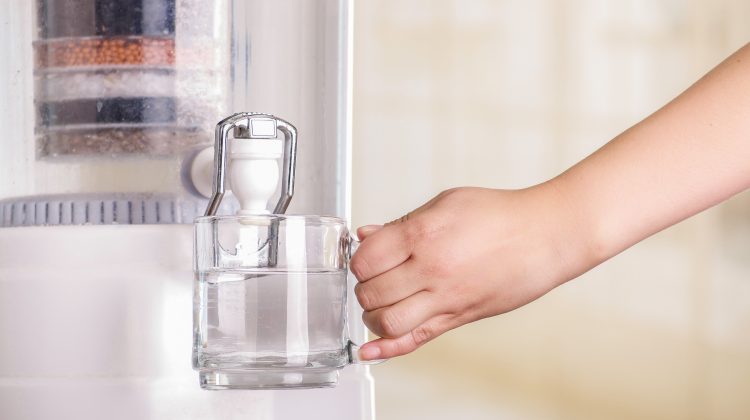Filtered Water, The Best Solution?
Water is a vast subject and when it comes to talking about water we can quickly get lost in it.
We will first see the different types of water available in order to understand what filtered water really is.
Most of the time when we talk about water, it is first tap water or bottled mineral water… Well there are many others and we are going to show you them!
Also Read: Advice for Anyone Building Their Own Home | 5 Home Renovations to Save Money on Your Bills
Mineral water and spring water: but it’s the same thing, isn’t it?
Well no, we tend to think that these waters are the same but they differ little, hence the need to define these two names.
Mineral water refers to water coming from an underground which has not been subjected to any treatment and which is directly bottled. It is water which is naturally very rich in minerals, hence its name. These minerals are acquired over the years thanks to the filtration carried out by the soils. The tastes can therefore be varied depending on the extraction zone and they can even be naturally carbonated! Mineral water is beneficial to meet certain needs such as the lack of magnesium. However, you must be vigilant because some waters can be too mineralized, which makes daily consumption not recommended.
For example :
- Too much fluoride deteriorates tooth enamel and promotes the appearance of brown spots on teeth
- Sodium promotes the onset of edema and high blood pressure
- Potassium, in large amounts, has adverse effects on the neuromuscular system
In reality, all mineral waters are too mineralized. Like all consumer products, mineral water is in moderation!
Spring water is also water of underground origin. Also drinkable and bottled at the source. The only difference between mineral water and spring water is the mineral composition which is not always stable. Spring waters can be drunk without restriction and without moderation.
Also Read: Owning a Private Company vs. an NGO or an NPO | Nach Baliye is all set to come up with a new season this June 2021
Tap water or running water is water that we know well. In general, tap water is routed from a collection point (a source, a borehole, rivers, etc.) directly to the taps of households or businesses. Most often, the water is made drinkable by a treatment and disinfection center and then stored in tanks such as a “water tower”. Tap water often has a different smell, aftertaste, or flavor from bottled water. There are no precise regulations on the comfort parameters of tap water, that is to say on its appearance, taste and smell, which is why it is sometimes not chosen as a solution. hydration.
You should know that tap water is still a real source of mineral intake, we find calcium, fluorine, potassium and sodium in good quantities for our body. Although the water is treated, it takes care of all these elements as it travels in contact with soils and rocks.
Barring an accident, tap water therefore remains healthy.
Filtered water is water that has been optimized. Although tap water is of good quality, it is not free from flaws. There is always chlorine, solid impurities, micropollutants and other drug residues. We understand that everyone prefers to do without these elements! This is where filtered water comes in. Filtered water is water that effectively treats substances that affect taste, especially chlorine. Filtered water is a good alternative, both qualitative and economical. Indeed, the savings made on water bottles is significant because the bottles are 100 to 200 times more expensive.
If you opt for a filtering solution, be careful not to filter the water intensively in order to preserve the mineral salts present in the water!
What solution for filtered water?
There are multiple water filter solutions, some are worth more than others but all meet different and specific needs.
For individual consumption at your home and if you are reluctant to consume water from your mains, try these methods for further purification:
Also Read: What is SPSS Testing? | Essay Writing Topics for MBA Admission
1. Activated carbon
It is found everywhere and it is an increasingly popular method. In the form of a small stick, you just have to immerse your activated charcoal in a carafe or other container and the water will filter by itself. In a few hours, the charcoal will eliminate all particles harmful to your health such as lead and chlorine.
2. Filter on the tap neck
The water is filtered directly from the tap. It is not very aesthetic, but it is an efficient system that can be turned on or off at any time. A cartridge is effective for about 3 months for 1200 liters filtered at a cost of 50 to 300 € for the system and 25 to 100 € per year for the cartridges.
3. Filter directly under the sink
The system is located under the sink and generally has several cartridges to filter as desired: chlorine, limestone, pesticides … The lifespan is longer than the previous solutions, 6 months for 1000 to 10,000 liters depending on the type of filtration chosen. The system costs between 50 and 300 € and cartridges from 25 to 100 € per year.
4. Reverse osmosis filter
It is one of the most effective solutions but also one of the most expensive and not necessarily the most practical. The water is filtered by an ultra thin membrane, which removes all unwanted substances like bacteria, viruses, heavy metals… The big problem with this device is overconsumption. Indeed, 4 liters of water are necessary for 1 liter of filtered water. In addition to this problem, the filtration is so efficient that the water is totally demineralized and it has to be remineralized behind. An additional cartridge allows this but it must be installed by a professional.
5. The filtering water fountain
Adapted to businesses, water fountains are a good way to offer filtered water in large quantities. Waterlogic fountains have filtration systems that act on the organoleptic qualities of your water by removing chlorine, contaminants, particles and other factors of undesirable tastes and odors from the water. Even better, essential nutrients are retained. The natural minerals pass through the filter to bring you all their benefits.
Waterlogic fountains use 10 micron Granular Activated Carbon (GAC) water filters . They are a first line of defense against bad taste, bad odors and water coloring. For an additional level of water filtration, some of the fountains can be equipped with a 1 micron Activated Carbon Block (CBC) filter with a rigid carbon structure to remove all contaminants and particles. Quite technical considerations but which can make the difference depending on the quality of the water in the network. The dirtier and more contaminated the water, the more important it will be to choose the right water filter for your water cooler.
Also Read: How to Write a Research Paper | 9 things you need to consider before buying a car
Activated carbon has been used for centuries to filter water intended for human consumption. All Waterlogic water fountains are equipped with an activated carbon water filtration system which guarantees water that is cleaner and more pleasant to drink than when it arrived in the machine.
Carbon is the best means of filtering water because it is extremely porous and manages to trap impurities, from petrochemicals to microscopic organisms. What’s left? Clean and filtered water, as it should be. There are some in stainless steel, ceramic, aluminum and in the worst case, plastic. The gourd remains the best alternative to the plastic water bottle. It is infinitely reusable and it can allow you to carry your water to work, to school, wherever you want. Some gourds are now equipped with filtering straws based on an integrated carbon filter which allows you to drink in complete safety, even in non-potable water sources!










